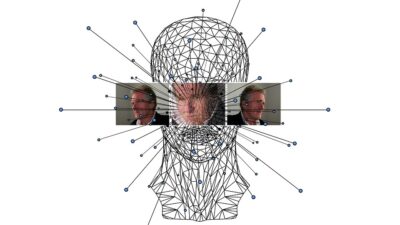In today’s digital landscape, where artificial intelligence (AI) is transforming industries and reshaping our daily interactions, the importance of data privacy has never been more pronounced. As we entrust more of our personal and professional lives to machines that learn and adapt, the guardianship of our data has emerged as a pressing concern. This article explores the challenges and solutions associated with ensuring data privacy in an AI-driven world.
The Rise of AI and Data Collection
AI systems thrive on large datasets, which are essential for training algorithms and enhancing performance. From chatbots to recommendation engines, these systems rely on vast amounts of user data to function effectively. As companies increasingly gather and analyze personal information, concerns over privacy, consent, and data security intensify.
The Challenges of Privacy
-
Data Breaches and Cybersecurity Threats:
The proliferation of data collection practices has made organizations attractive targets for cybercriminals. High-profile data breaches have exposed millions of records, leading to identity theft and financial fraud. Protecting sensitive information from malicious attacks is paramount. -
Informed Consent:
Many users lack clarity regarding how their data will be collected, used, and shared. Informed consent must be a cornerstone of data practices, ensuring users understand the implications of their data being utilized in AI models. -
Algorithmic Bias:
AI systems are only as good as the data that underpins them. If these datasets contain biased information, the resulting algorithms can perpetuate discrimination. Ensuring fairness and equity in AI outputs necessitates rigorous scrutiny of data sources and usage. - Legal and Regulatory Compliance:
Increasingly stringent regulations governing data privacy, such as the General Data Protection Regulation (GDPR) in Europe and California Consumer Privacy Act (CCPA) in the United States, hold organizations accountable for how they manage personal information. Complying with these laws can be a daunting task for companies that may lack the necessary infrastructure.
Guardians of Data: Solutions for Privacy Protection
-
Robust Data Governance Policies:
Organizations must establish comprehensive data governance frameworks that outline clear policies for data collection, storage, and usage. These policies should incorporate principles of transparency, responsibility, and fairness. -
Security Measures and Technologies:
Implementing strong cybersecurity protocols such as encryption, multi-factor authentication, and regular security audits is essential to safeguard sensitive data. Organizations should also invest in advanced technologies like AI-driven security systems that can detect anomalies and potential threats in real-time. -
User Empowerment and Education:
To navigate the complexities of data privacy, empowering users with knowledge is crucial. Organizations can enhance user awareness through transparent privacy policies, regular updates, and educational resources that inform individuals about their rights and options concerning data privacy. -
Ethical AI Development:
Integrating ethical considerations into AI development is critical. Companies should adopt best practices, such as bias detection and mitigation techniques, ensuring that AI systems promote fairness and inclusivity while complying with legal standards. - Independent Oversight and Auditing:
Having independent third parties conduct audits of data practices can promote accountability and transparency. This oversight can help organizations identify areas of risk and ensure compliance with evolving regulations.
A Collaborative Approach
Ensuring data privacy in an AI-driven world is not solely the responsibility of individual organizations. It requires a collaborative effort among stakeholders, including governments, technology companies, and civil society. Policymakers must engage with industry experts to draft regulations that protect consumers while fostering innovation. Similarly, businesses must prioritize ethical practices to build trust and protect their users.
Conclusion
As AI continues to evolve and reshape our world, safeguarding privacy will be a paramount challenge. By embracing responsible data practices, investing in cybersecurity, and fostering a culture of transparency, we can create a future where technology enhances our lives without compromising our fundamental rights. The guardians of data must rise to the occasion, ensuring that the advances of AI serve society ethically and responsibly, preserving our autonomy in an increasingly data-centric world.



